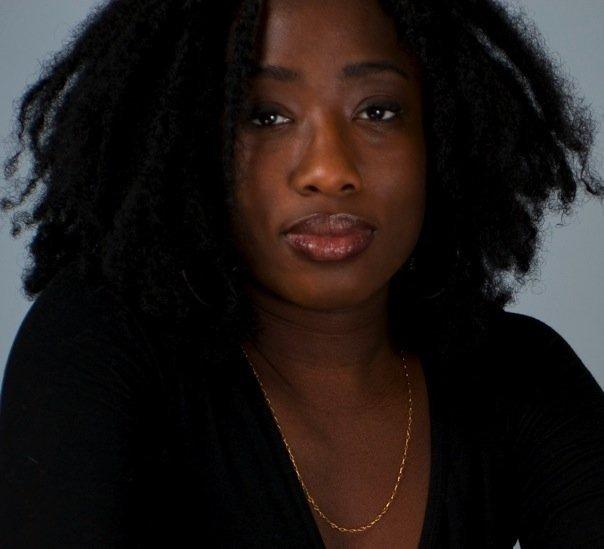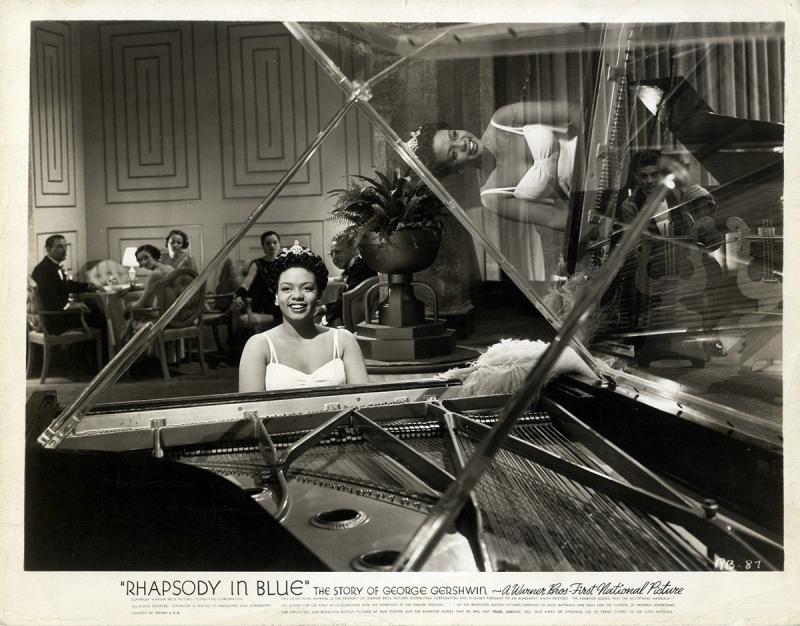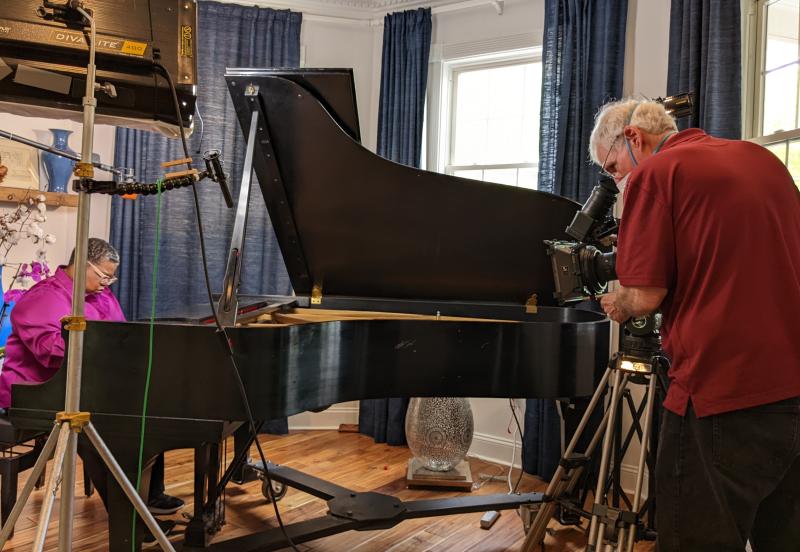Unveiling the Legacy of Hazel Scott: A Conversation with Filmmaker Nicole London

Nicole London. Photo by Burroughs Lamar
Emmy Award-winning and Grammy-nominated producer and director Nicole London’s journey into the world of filmmaking was unconventional yet deeply rooted in her profound connection to media. As London reflected on her path, she said, “I actually wasn’t drawn to the world of filmmaking so much as I was drawn to the world of television!” Initially pursuing a pre-med major in college, London's fascination with television led her to broadcasting school in Baltimore, Maryland. Her trajectory took a pivotal turn when she ventured into the realm of documentary filmmaking, inspired by her experience as a personal assistant to a seasoned filmmaker.
London has carved out her own filmmaking path through her work on documentary films, such as The Black Panthers: Vanguard of the Revolution, which earned an Exceptional Merit In Documentary Filmmaking Emmy nomination in 2016. She served as the producer for Miles Davis: Birth of the Cool, receiving a Grammy nomination for Best Music Film in 2020 and winning the 2021 News & Documentary Emmy for Outstanding Arts and Culture Documentary. In 2021, London's contributions were recognized at the 22nd Annual African American Women In Cinema Film Festival, where she was honored as a Trailblazer.
When asked about her own mission statement as a filmmaker, London said, “to illuminate the Black experience in all its myriad forms, to provoke thought and inspire action.” With these guiding principles, London embarked on her latest endeavor, directing the upcoming National Endowment for the Humanities- and NEA-supported documentary The Disappearance of Miss Scott, featured on the Public Broadcasting Service television series American Masters.
Hazel Scott (1920-1981) is an unsung icon of Hollywood and a trailblazer in her own right. London's decision to direct the documentary was fueled by a desire to bring Scott's legacy to light. “It’s shocking that a film hasn’t been done about Hazel Scott before,” London said. “Here is a true maverick—a woman who was one half of what arguably was the first Black power couple, a virtuoso pianist, a trailblazer in film and on the performance stage, the first Black woman to host her own television show, an often-solo crusader for civil rights, a defiant challenger to the smears of McCarthyism. Who wouldn’t want to be the first to commit her story to film?”

Studio still of Hazel Scott in the movie Rhapsody in Blue. Photo by Warner Bros.
As London delved into the creative process—seeking out individuals who knew Scott personally, including relatives—she aimed to capture the breadth and impact of Scott's life and achievements. “I especially hope her story emboldens young Black women and all women to stand up for themselves in every field, to keep kicking open doors for their sisters to follow through,” she said.

Tammy Kernodle (left) and Thomas Kaufman (right) on the set of The Disappearance of Miss Scott. Photo by Nicole London
With the documentary currently in post-production, London shared that the most important lesson she took from Scott’s legacy was “the way Hazel Scott used her platform and influence to advocate for social justice and civil rights. The fact that she most often stood alone in the fight—that was so powerful to me. That ability to remain resilient and overcome obstacles, it’s an example to draw strength from.” Looking ahead, London envisions the film as a catalyst—for works from future Broadway shows to biopics—for broader recognition and exploration of Scott's life.
For aspiring filmmakers who are creating their own lane, London shared the following three pieces of advice: “Embrace discomfort, refrain from comparing journeys, and above all, keep going.”




